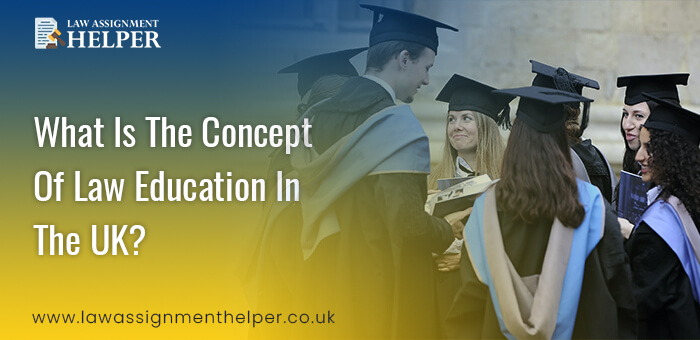Introduction
It is an organized and structured system that has prepared individuals to become lawyers in the United Kingdom (UK). Reaching the status of a qualified lawyer is accompanied by several stages in education and practice. This is a summary of the main elements of law education in the UK.
1. Undergraduate Law Degree (LLB):
Legal education in the UK usually starts with an undergraduate law degree, which is referred to as a Bachelor of Laws (LLB). This is a three-year program and aims at equipping the students with fundamental knowledge of law.
In the LLB, core subjects that students study include contract law, criminal law, constitutional law, and equity. Elective modules are also offered in some programs for specialization purposes.
2. Graduate Diploma in Law (GDL):
Although the LLB is popular traditionally, those with non-legal undergraduate degrees can pursue law through a graduate diploma in Law (GDL). The GDL is a one-year conversion course that provides the core legal principles and prepares students for their next level of legal training.
3. Legal Practice Course (LPC) and Bar Professional Training Course (BPTC):
After the LLB or GDL, future solicitors and barristers need to complete a professional training course. For solicitors, this is the Legal Practice Course or LPC, which trains specific practical legal skills that are needed in day-to-day work as a solicitor. In contrast, barristers undertake the Bar Professional Training Course (BPTC) which focuses on the essentials of courtroom advocacy, research, and drafting. The BPTC is therefore a prerequisite for individuals seeking to become barristers.
4. Training Contract (Solicitors) or Pupillage (Barristers):
When the completion of LPC or BPTC is achieved, in this case, solicitors’ training contract or barristers pupillage takes place.
A training contract refers to a two-year period during which people are employees by a law firm for practical experience in different domains of law. In this period, they can shift through different departments to have a good perspective of legal practice.
As soon as they are done with the BPTC, barristers undergo pupillage (a practical training period in chambers). Students interact with seasoned barristers, witness court activities, and eventually handle more duties.
5. Solicitors Qualifying Examination (SQE):
While the classic path for solicitors was associates with LPC completion, some changes implementing in recent years have brought to light the Solicitors Qualifying Examination (SQE). The SQE is a two-phase assessment that acts as the last barrier before qualifying as a solicitor, replacing the LPC.
The SQE1 evaluates the candidates’ legal knowledge and it is a computer-based multiple-choice assessment. Legal practical skills are assesses by simulating tasks and client interviews as part of SQE2.
6. Call to the Bar:
The high point of training for barristers is “calling to the Bar” which follows successfully passing through the pupillage and is a formal ceremony carries out by one of the four Inn of Courts. It demonstrates the movement from a trainee to a fully qualified barrister.
7. Continuing Professional Development (CPD):
Both solicitors and barristers have to go through continuing professional development (CPD) once when they qualify to keep up with the legal developments and improve their skills. Activities in CPD may include participation in legal seminars, and workshops, and even obtaining other academic degrees.
8. Specialization and Further Education:
After qualifying, many legal professionals decide to specialize in an area of law. Specialization can also include more studies, for example pursuing an LLM or another postgraduate degree for a specialized knowledge of one area of law.
9. Regulatory Bodies:
The UK has regulatory authorities such as the Solicitors Regulation Authority (SRA) and the Bar Standards Board (BSB) that ensure legal education and professional requirements are uphelds. These organizations set the standards for legal education, training, and professional conduct.
10. Legal Systems of Scotland and Northern Ireland:
It should be notes, however, that the educational institutions and qualification processes may differ in Scotland and Northern Ireland, where unique legal frameworks apply. Various regions have unique educational needs and job possibilities. Students can opt for professional help in cases where Law Assignment Help has proven to be the best helping service regarding law.
Conclusion:
The law education system in the United Kingdom is vibrant and rigorous, combining theoretical instruction with practical experience. The plans approach from undergraduate study to professional qualification ensures that practitioners are well-prepares for legal practice. There are ongoing improvements, such as the implementation of SQE, that demonstrate how legal education responds to evolving professional demands. Aspiring attorneys take this road in search of more than simply legal information; they want practical expertise and a basis of ethics that will allow them to practice law meaningfully.
